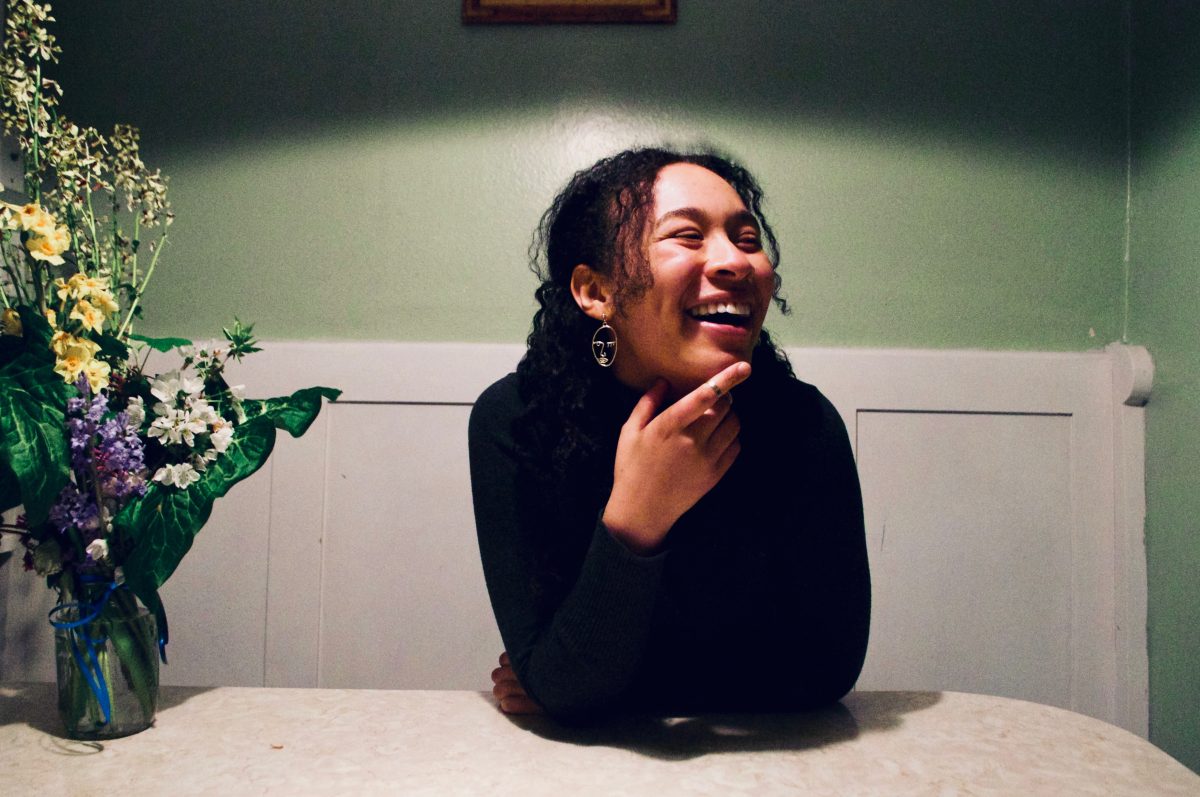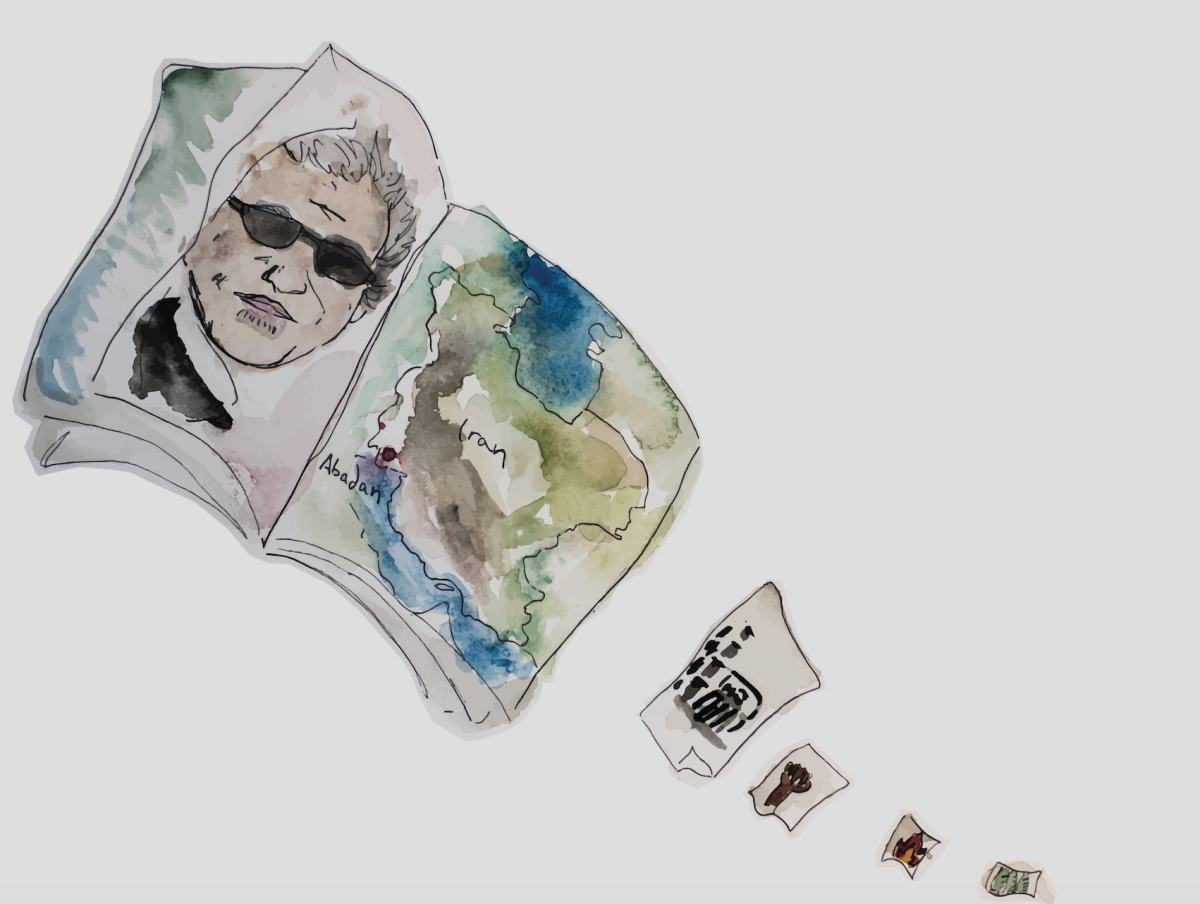“When a woman has a discharge, and the discharge in her body is blood, she shall be in her menstrual impurity for seven days, and whoever touches her shall be unclean until the evening. And everything on which she lies during her menstrual impurity shall be unclean. Everything also on which she sits shall be unclean. And whoever touches her bed shall wash his clothes and bathe himself in water and be unclean until the evening.” Leviticus 15:19-21.
The stigmatization of menstruation has long-reaching historical roots that carry into present day. Many people still consider menstruation to be gross. Every person who has ever gotten a period probably has a story of being teased for it. These experiences can fill people with shame and maybe even disgust.
Along with those stigmas, Red Tents—the spaces where women were sent to while they were menstruating—have traveled their way through history and time. In Eugene, Oregon, a woman named Athena hosts her own Red Tent events with different intentions. She has long-admired how they helped women bond emotionally and create relationships. So now, once a month around the new moon, she brings community members together. Her Red Tent events offer people many benefits like emotional support, a space to be heard and a sense of sisterhood.
Athena exudes confidence when she enters a space. She holds her head high above her broad shoulders but never forgets to smile while welcoming in the people she has opened her home to.
Athena started running her own Red Tent events so she and her daughter, Sylvia, could feel close to their community. She finds it necessary to establish a close-knit community with the people around her and understands that Red Tents were a way to solidify these communities in ancient societies.
“Now, many times people don’t even know who their neighbors are,” Athena said. “That seems kind of scary to me. I grew up in a small town so I guess I’m just trying to replicate that for myself and for my daughter.”
Athena grounds her events in this necessity for community. She values emotional connections and having a space to be heard. She considers these thing when planning the themes and activities for each event.
“I think about where I am energetically and what may be calling me and make them centered around that,” she said. “I am doing a lot of the things other women are doing and so it doesn’t seem unnatural that whatever I’m needing is probably what other people are needing—like a connection.”
I attended one of Athena’s Red Tent events. The scene was ethereal and intimate. Athena lined her carpet, ceiling and walls with red sheets and blankets, bordered with white lights. Everyone sat in a circle on the floor. To our right was an altar with candles, incense, Palo Santo and tarot cards. Each person was invited to bring an item to place on the altar. I chose a necklace from a high school friend—a smiling sunshine pendant.
Athena thought “Love” would be a good theme for the month of February. After everyone introduced themselves to the group, we read aloud affirmations: “Love is my guiding truth;” “I am creating loving and supportive relationships;” “I am fully open to giving and receiving love.”
Following this, participants responded to prompts about how they experience love. Then we did a guided meditation for opening heart chakras. Athena chose to set aside some time for socializing after the meditation and we finished with a talking circle. The talking circle was the longest portion of the evening. The group passed around a foot-long piece of pearly-white selenite—a crystal which is said to enhance mental clarity. Whoever held the selenite could speak. This was an opportunity to open up about our feelings and be heard.
Sylvia, Athena’s 14-year-old daughter, is among the frequent attendees of the Red Tent Events. Sylvia actively participates and discusses her emotions, which can be a challenge for her because she has autism.
“I embrace any opportunity I can find for her to socialize,” Athena said. “Kids on the spectrum tend to isolate and it’s difficult for them to feel motivated to go to something like that.”
Sylvia also recognizes how the Red Tent events have benefitted her.
“There is something very interesting about socializing—meeting new people, expressing each other’s feelings without worry, putting yourself out there,” Sylvia said. “You learn a new thing from this person, learn a new thing from that person.”
But beyond her daughter’s needs, Athena feels these events could help all young people.
“Even if they’re not on the spectrum, I feel like kids in that age, they’re really learning how to socialize,” Athena said. “They’re really learning their identity as far as sexuality and gender. It’s a very sensitive time for self-discovery. They could get more in touch with their emotions and in touch with a feminine-identified energy.”







![[Photo Courtesy of the Lara Family]
Ruben embraces his beloved childhood goat, Katrina.](https://ethos.dailyemerald.com/wp-content/uploads/2025/05/katrina-1-1060x1200.jpg)


